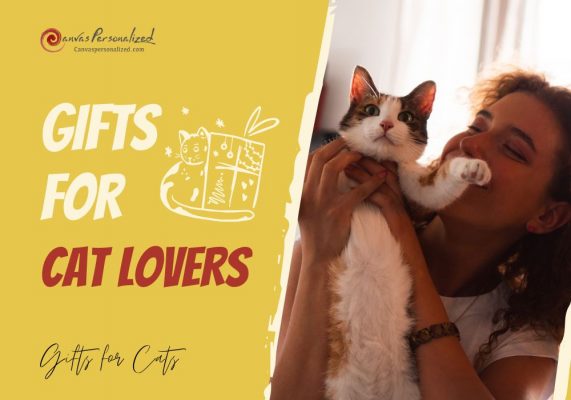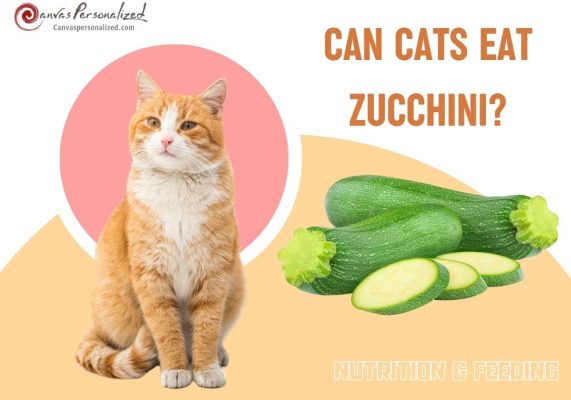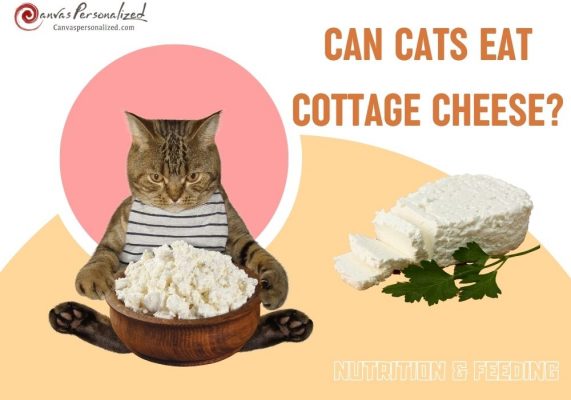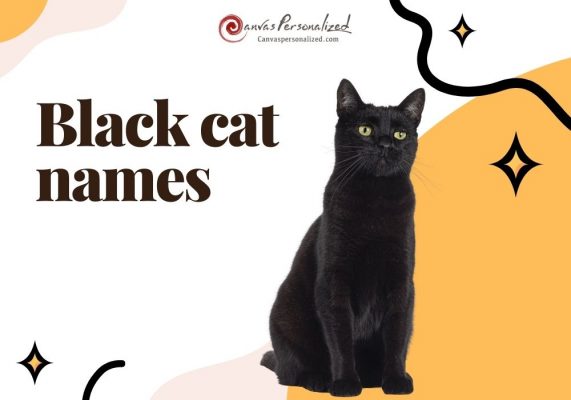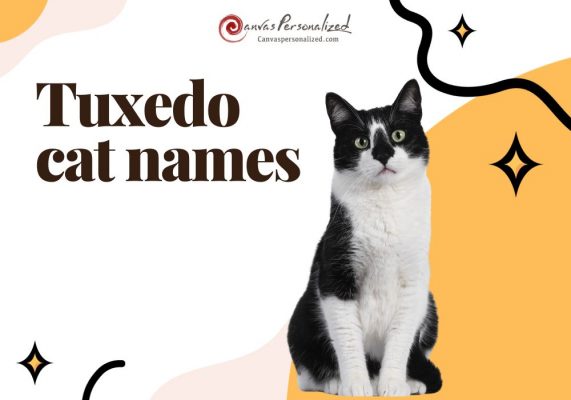If you’re a pet owner who has ever wondered, “Can cats eat cottage cheese?” you’re not alone. At Canvas Personalized, we understand the importance of providing your feline friend with a balanced diet. This blog post will debunk some common myths about cats and cottage cheese. Find the information you require to ensure the well-being of your pet.
1. Can Cats Eat Cottage Cheese?

Is it ok for cats to eat cottage cheese? Yes. Cats can enjoy this food if it is sourced from a reliable organic farm.
Cottage cheese should be made from milk and nothing else. If you see a long list of ingredients on the label, stay away from it. The more ingredients you see, the less natural and wholesome the food is. You wouldn’t want to give your cat a treat that was full of preservatives, GMOs, or anything else harmful.
Keep in mind that cottage cheese is manufactured using cow’s milk, which isn’t something a cat would eat in the wild. Don’t give it to your cat frequently or in large amounts. Cottage cheese is acceptable as a light snack every once in a while but not as a main course.
2. Can Kittens Eat Cottage Cheese?

The fact that kittens drink their mothers’ milk can lead you to believe that cheese is acceptable for them to eat. Kittens are able to digest and absorb their mother’s milk because they naturally create a small amount of the lactase enzymes necessary for this process.
However, once kittens begin eating solid food, their enzyme synthesis begins to decline. As soon as a kitten starts to adjust to solid cat food, it no longer has the digestive capacity to process dairy products. So, it’s advisable to cut out all dairy products, including cottage cheese, for your kitten. It can cause digestive problems, including diarrhea, and possibly irreversible damage to their developing intestines and immune systems.
3. Is Cottage Cheese Bad for Cats?

Should cats eat cottage cheese? Obligate carnivores like cats can’t process lactose because it is not in their natural diet. Due to the high lactose content of cottage cheese and other cheeses, they may experience gastrointestinal distress. A moderate amount probably won’t hurt them, but excessive consumption might lead to nausea, vomiting, diarrhea, and abdominal pain. Dairy allergy sufferers could also feel bloating, hair loss, a rash, patches of redness, or itchiness on their skin.
Additionally, cats that are overweight and need to lose weight should not be fed cottage cheese. Due to its high caloric content, cheese should be provided only on rare occasions.
4. My Cat Ate Cheese What Should I Do?
Your cat may show no symptoms or only moderate digestive discomfort if it eats minimal cheese. You can give them clean water and watch for any changes.
If your cat ate a lot of cheese, the problems could worsen. In this instance, you should immediately call your vet or a pet poison hotline for advice. You may need to take your cat to the clinic for examination and treatment.

Can a cat eat cottage cheese? Some types of cheese may be less harmful than others for cats. For example, cottage cheese is lower in fat and salt than most cheeses and may have some benefits for cats with urinary or kidney problems. It would be best to exercise caution when feeding your cat cottage cheese, both in quantity and frequency. Cheese is not a suitable addition to or replacement for your cat’s regular diet of balanced and healthy cat food.
The best way to prevent your cat from eating cheese is to keep it out where your cat cannot get it. Also, your cat needs to be taught not to steal food from your plate or beg for it. If you want to treat your cat to something tasty occasionally, you can choose some healthy and safe options that are specially designed for cats.
5. What are the Other Dairy Products that Cats Can Eat?
Can Cats Eat Mozzarella Cheese?

Many owners have discovered their cats feasting on pizza leftovers, but is all that melted cheese healthy for them? No, not at all. Due to their high lactose content, soft cheeses like mozzarella pose health risks to cats, whether raw or cooked. Similarly, cream cheese also presents hazards and should be avoided.
Can Cats Eat Cheddar Cheese?

Yes! Cheddar is a semi-hard cheese with a low lactose content. Nonetheless, it would be best not to feed your cat excessive amounts of cheddar because it might lead to tummy issues.
Can Cats Eat Vegan or Non-dairy Cheeses?
Since lactose isn’t present in vegan cheeses, they must be healthy, right? It’s a no, unfortunately. The high salt and fat levels in these foods make them unhealthy for cats to consume.
Vegan cheeses are made from plant-based ingredients, such as soy, nuts, seeds, or coconut. They are often highly processed and contain artificial flavors, colors, preservatives, and stabilizers to mimic the taste and texture of dairy cheese. These substances can be unhealthy for cats and cause allergic reactions, kidney problems, or liver damage.
Non-dairy cheeses are made from animal-based ingredients, such as eggs, gelatin, or casein. They are also processed and contain salt and fat, which can contribute to obesity and heart disease in cats.

>> Maybe you’re interested in:
- Can Cats Eat Donuts? The Best Answer from Veterinarian in 2023
- Can Cats Eat Mayo? Exploring the Best ‘Safety and Risks’ Answer
Finally, “Can cats eat cottage cheese?” is yes, but only in small amounts and under close supervision. Canvas Personalized has cracked the mysterious feline diet. Be concerned about your pet’s health and ask your vet for recommendations. But remember to embrace your cat’s penchant for occasionally, ensuring a harmonious and healthy journey together.



